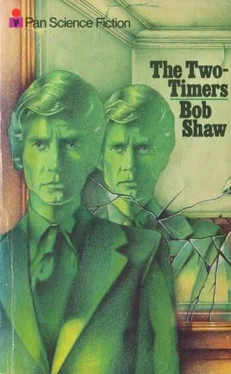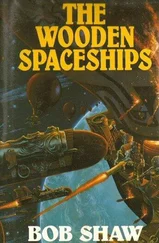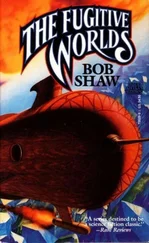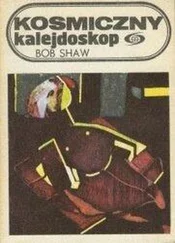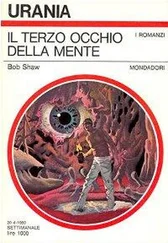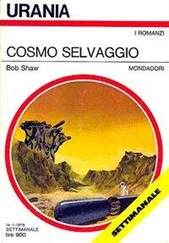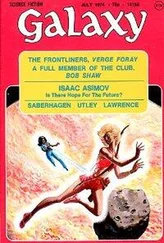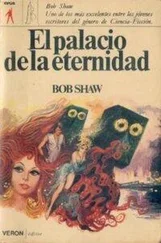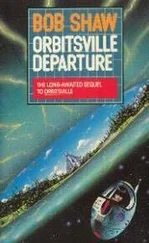Bob Shaw - The Two Timers
Здесь есть возможность читать онлайн «Bob Shaw - The Two Timers» весь текст электронной книги совершенно бесплатно (целиком полную версию без сокращений). В некоторых случаях можно слушать аудио, скачать через торрент в формате fb2 и присутствует краткое содержание. Год выпуска: 1971, Издательство: Pan SF, Жанр: Фантастика и фэнтези, на английском языке. Описание произведения, (предисловие) а так же отзывы посетителей доступны на портале библиотеки ЛибКат.
- Название:The Two Timers
- Автор:
- Издательство:Pan SF
- Жанр:
- Год:1971
- ISBN:нет данных
- Рейтинг книги:5 / 5. Голосов: 1
-
Избранное:Добавить в избранное
- Отзывы:
-
Ваша оценка:
- 100
- 1
- 2
- 3
- 4
- 5
The Two Timers: краткое содержание, описание и аннотация
Предлагаем к чтению аннотацию, описание, краткое содержание или предисловие (зависит от того, что написал сам автор книги «The Two Timers»). Если вы не нашли необходимую информацию о книге — напишите в комментариях, мы постараемся отыскать её.
THE TWO-TIMERS is his third novel, but the first to achieve maior publication.
The Two Timers — читать онлайн бесплатно полную книгу (весь текст) целиком
Ниже представлен текст книги, разбитый по страницам. Система сохранения места последней прочитанной страницы, позволяет с удобством читать онлайн бесплатно книгу «The Two Timers», без необходимости каждый раз заново искать на чём Вы остановились. Поставьте закладку, и сможете в любой момент перейти на страницу, на которой закончили чтение.
Интервал:
Закладка:
He went down into the kitchen, peered through the curtained door and went out onto the roofed patio. The lemon-tinted sunlight of an October afternoon streamed through the trees in slowly merging beams, and from the distance came the patient, regular sound of a lawn mower. Breton walked towards the observatory.
“Ho there! Not working today?”
Breton spun as the voice came from behind him. The speaker was a tall, fit-looking man of about forty who had just come around the side of the house. He was dressed in neat sport clothes, worn the way other men wear business suits, and his tightly-waved hair was grayed at the temples. His face was broad and sunburned, with a tiny nose which made scarcely any division between widely-spaced blue eyes.
Breton experienced a thrill of almost superstitious dread as he recognized Lieutenant Convery — the man who, in another time-stream, had come to tell him of Kate’s death — but he remained in perfect control of his reactions.
“Not today,” he said, smiling. “A man has to relax every now and then.”
“I didn’t know you felt that way, John.”
“But I do, I do — I don’t make a habit of it, that’s all.” Breton noticed the other man’s use of his Christian name, and tried unsuccessfully to think of Convery’s. This is incredible, he thought. How can a man have such bad luck?
Convery smiled, showing very white teeth made even more brilliant in places by slight fluoride mottling. “I’m glad to hear you don’t work all the time, John — it makes me feel less of a slob.”
John again, Breton thought. I can’t call him Lieutenant if we’re on first-name terms. “Well, what brings you out this way?”
“Nothing much — a couple of routine calls in the area.” Convery reached into his pocket. “So I brought this.” He brought out a brown pebble-like object and handed it to Breton.
“Oh, yes.” Breton inspected the object, noting its segmented, spiral construction. “Oh, yes?”
“Yeah. My boy got it from another kid at school. I told him I’d get you to…” He let his voice trail away, and stood waiting.
Breton stared down at the coiled stone, mind racing desperately. He remembered Kate saying that Convery sometimes called to drink coffee with John and talk about fossils. Presumably this was because John had some professional knowledge of geology. Did it include fossils? He tried to send his mind back more than nine years to the time when he too had been interested in the rock-embalmed time travelers.
“This is a reasonably fair ammonite,” he said, praying that Convery merely wanted a simple identification.
Convery nodded. “Age?”
“About two hundred and fifty million years — hard to say for sure without knowing where it was found.”
“Thanks.” Convery took the fossil back and dropped it in his pocket. His intelligent blue eyes flickered momentarily and Breton suddenly knew that his relationship with the other Breton was a complex and uneasy thing. “Say, John?”
“Uh-huh?” Why, Breton wondered, did he insist on using the first name so much?
“You’re losing some weight, aren’t you?”
“It’s nice of you to notice it. A fellow can get discouraged if he goes on dieting for weeks without any obvious result.”
“I’d say you’ve lost seven or eight pounds.”
“That’s about right — and I really feel better for it.”
“I think you looked better the way you were, John,” Convery said thoughtfully. “You look tired.”
“I am tired — that’s why I took the afternoon off.” Breton laughed, and Convery joined in.
Breton remembered the coffee. “Do you feel like risking a cup of coffee brewed with my own hand? Kate’s out shopping.”
“Where’s Mrs. Fitz?”
Breton’s mind went numb, then be recalled that Mrs. Fitz was the cook-housekeeper. “We gave her a few days off,” he said easily. “She has to rest too, you know.”
“I guess I’ll just have to risk your coffee then, John.”
Convery pushed open the kitchen door and ushered Breton inside. While Breton was preparing the coffee he considered the problem of the fact that they were supposed to know each other’s preferences about cream and sugar, and circumvented it by setting both on the kitchen table in advance. He found the familiar domestic activity relaxing, realizing he had been needlessly alarmed over Convery’s visit. Kate had said the policeman sometimes dropped by to talk about fossils and drink coffee — and that was exactly what was happening. Even if Kate were to return right then there would be nothing to arouse Convery’s curiosity, and John Breton was not expected for at least three hours.
Breton took his coffee black and so hot that flat gray films of vapor crazed its surface. Convery took cream but no sugar, and sipped it with evident appreciation. While he drank he raised the subject of the meteor bombardments which were turning the night skies into firework displays. Pleased at finding the conversation turning to something which placed him on an equal footing with any other inhabitant of the Time B universe, Breton discussed the meteors willingly.
“Back to work,” Convery said when he had finished his second cup. “Us minions of the law aren’t supposed to laze around like this.” He stood up and carried his cup and saucer over to the sink unit.
“That’s life,” Breton said uninspiredly.
He said goodbye to Convery in the patio and went back into the house, filled with a heady sense of satisfaction. There was now nothing to stop him going ahead with his plan to step into John Breton’s shoes. The one point about which he had been uncertain was his ability to meet people who knew John and be with them for extended periods without arousing suspicious or, at least, curiosity. But he had carried off the encounter with Lieutenant Convery well, extremely well, and could see that there was nothing to be gained by delaying things any further — especially since Kate’s emotional reactions were showing signs of becoming complicated.
Jack Breton went upstairs to the guest bedroom, took the pistol from its hiding place deep in a closet, and laid the cool, oily metal against his lips.
IX
When Lieutenant Blaize Convery was a boy of four, his mother once told him that deaf-and-dumb people usually learned “to talk with their hands.”
He decided then and there that this would be a useful and fascinating accomplishment, even for a person who had all his faculties. For the next three years the infant Convery devoted some time every day to learning the secret, sitting alone in his room, staring at his right hand while putting it through every conceivable contortion, hoping to discover the magical combination of flexures and tensions which would cause a voice to issue from his palm. When he finally found out, through another chance remark, that his mother had been referring to sign language he abandoned his quest immediately and without regrets. He had learned the truth, and was satisfied.
When Lieutenant Blaize Convery was a boy of seven, his father had shown him a diagram consisting of a square, nested inside a circle, with straight lines connecting the corners laterally. It was possible, his father had said, to reproduce that diagram without lifting his pencil or going over any line twice. Convery worked on the puzzle at odd moments for six years.
After the first month he was virtually certain it was impossible — but his father, who had died in the meantime, had claimed he had seen it done — so he kept on gnawing at the problem. Then he had chanced on a magazine biography of the eighteenth century Swiss mathematician Leonard Euler, founder of topography. The article mentioned Euler’s solution of the problem of the seven bridges of Konigsberg, proving it was possible to cross all of them without crossing any twice. It also mentioned, incidentally, that the same proof provided a way to check on the solvability of diagram puzzles — count the number of lines entering each node of the diagram, and if more than two of them have an odd number, you cannot draw it without going over a line or lifting your pencil.
Читать дальшеИнтервал:
Закладка:
Похожие книги на «The Two Timers»
Представляем Вашему вниманию похожие книги на «The Two Timers» списком для выбора. Мы отобрали схожую по названию и смыслу литературу в надежде предоставить читателям больше вариантов отыскать новые, интересные, ещё непрочитанные произведения.
Обсуждение, отзывы о книге «The Two Timers» и просто собственные мнения читателей. Оставьте ваши комментарии, напишите, что Вы думаете о произведении, его смысле или главных героях. Укажите что конкретно понравилось, а что нет, и почему Вы так считаете.
